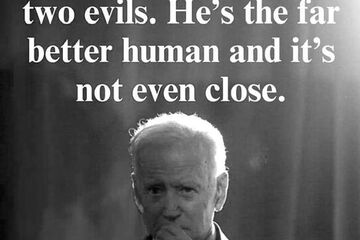There are a small number of influential people, including the president, who have repeatedly been instrumental in stoking misinformation about the election, excerpts from January 8, 2021 The New York Times article “Trump isn’t the only one” by Shira Ovide.
Researchers have found that a small group of social media accounts are responsible for the spread of a disproportionate amount of the false posts about voter fraud.
Facebook, Twitter and YouTube should subject the prominent band of habitual online misleaders to stricter rules. Today, online companies consider only the content of online messages, not the identity of the messenger to decide whether a post is potentially harmful or dangerously misleading and should be deleted or hidden. Prominent people need to be subjected to stricter rules for repeat offenders of false information. That would include Mr. Trump and other world leaders who have used their online accounts to inflame divisions and inspire mob violence.
For example, starting with Eric Trump on November 5, 2020, using the hashtag, Stop the Steal, asked his Facebook followers to report cases of voter fraud. His post was shared over 5,000 times. Later that day, conservative media personalities Diamond and Silk had shared the hashtag along with a video claiming voter fraud in Pennsylvania. Their post was shared over 3,800 times. That night, conservative activist Brandon Straka asked people to protest in Michigan under the banner #StoptheSteal. His post was shared more than 3,700 times. Over the next week, the phrase “Stop the Steal” was used to promote dozens of rallies that spread false voter fraud claims about the U.S. presidential elections. Across Facebook, there were roughly 3.5 million interactions — including likes, comments and shares — on public posts referencing “Stop the Steal” during the week of Nov. 3.
It just took just 33 posts on Facebook that were liked, shared or commented 13 million times. These posts created a narrative that would go on to shape what millions of people thought about the legitimacy of the U.S. elections.
In November, the New York Times found just 25 Facebook accounts, including those of Trump and the right-wing commentator Dan Bongino, accounted for about 29 percent of the interactions that researchers examined of widely shared Facebook posts about voter fraud.
A coalition of misinformation researchers called the Election Integrity Partnership found that about half of all retweets related to dozens of widely spread false claims of election interference could be traced back to just 35 Twitter accounts, including those of Mr. Trump, the conservative activist Charlie Kirk and the actor James Woods. Most of these 35 accounts helped seed multiple falsehoods about voting, the researchers found.
Now is the time for all of us to begin to repair this broken system of communication and influence.


0 Comments